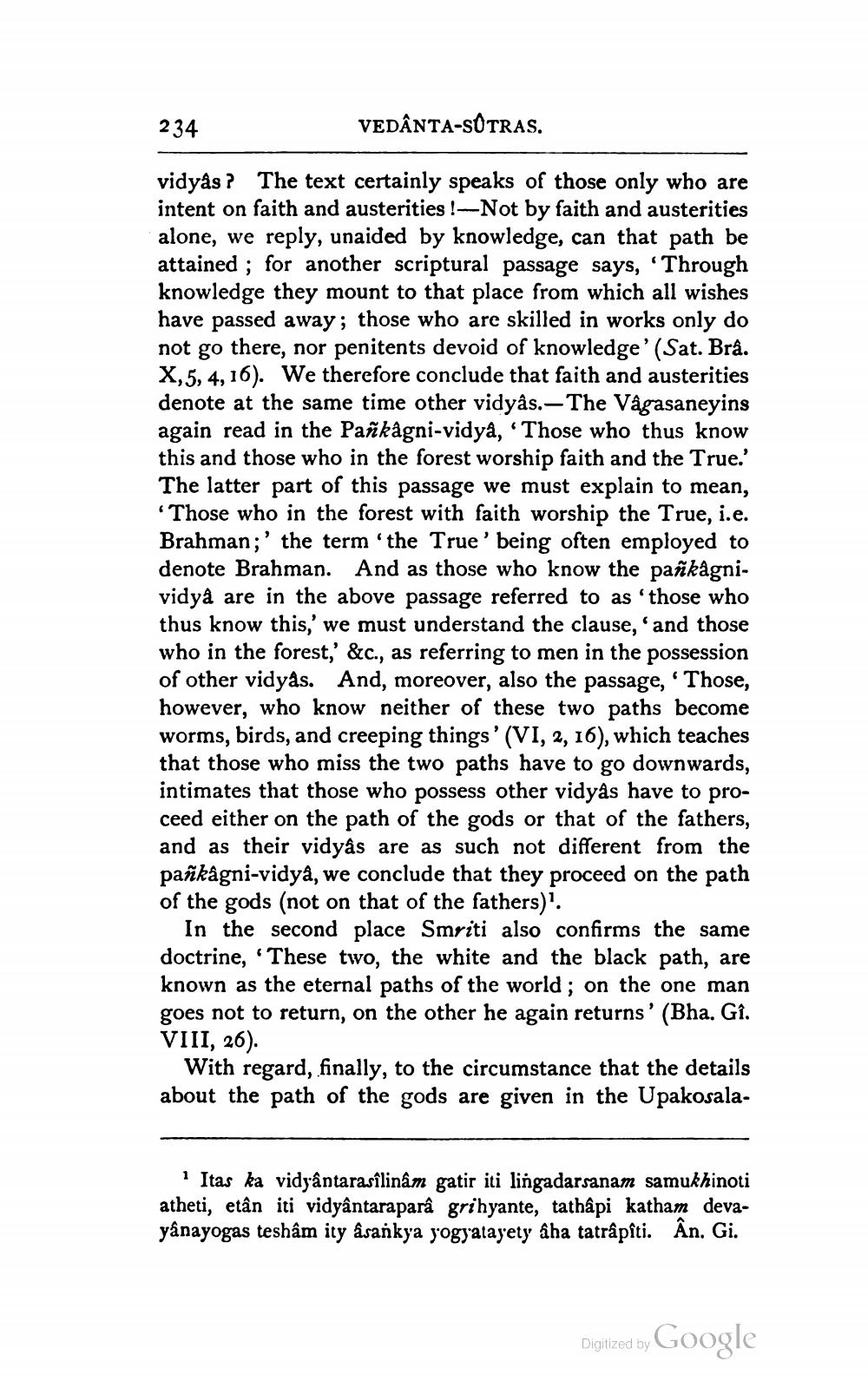________________
234
VEDÂNTA-SOTRAS.
vidyâs? The text certainly speaks of those only who are intent on faith and austerities !-Not by faith and austerities alone, we reply, unaided by knowledge, can that path be attained ; for another scriptural passage says, Through knowledge they mount to that place from which all wishes have passed away; those who are skilled in works only do not go there, nor penitents devoid of knowledge' (Sat. Brâ. X,5, 4, 16). We therefore conclude that faith and austerities denote at the same time other vidyâs.- The Vågasaneyins again read in the Pañkågni-vidya, 'Those who thus know this and those who in the forest worship faith and the True.' The latter part of this passage we must explain to mean, 'Those who in the forest with faith worship the True, i.e. Brahman;' the term 'the True' being often employed to denote Brahman. And as those who know the pañkågni. vidya are in the above passage referred to as 'those who thus know this,' we must understand the clause, and those who in the forest,' &c., as referring to men in the possession of other vidyas. And, moreover, also the passage, 'Those, however, who know neither of these two paths become worms, birds, and creeping things' (VI, 2, 16), which teaches that those who miss the two paths have to go downwards, intimates that those who possess other vidyàs have to proceed either on the path of the gods or that of the fathers, and as their vidyâs are as such not different from the pankägni-vidya, we conclude that they proceed on the path of the gods (not on that of the fathers)".
In the second place Smriti also confirms the same doctrine, "These two, the white and the black path, are known as the eternal paths of the world; on the one man goes not to return, on the other he again returns' (Bha. Gi. VIII, 26).
With regard, finally, to the circumstance that the details about the path of the gods are given in the Upakosala
Itas ka vidyantara sílinam gatir iti lingadarsanam samukhinoti atheti, etân iti vidyântaraparâ grihyante, tathâpi katham devayanayogas teshâm ity âsankya yogyatayety aha tatrâpiti. An. Gi.
Digitized by
Digitized by Google




